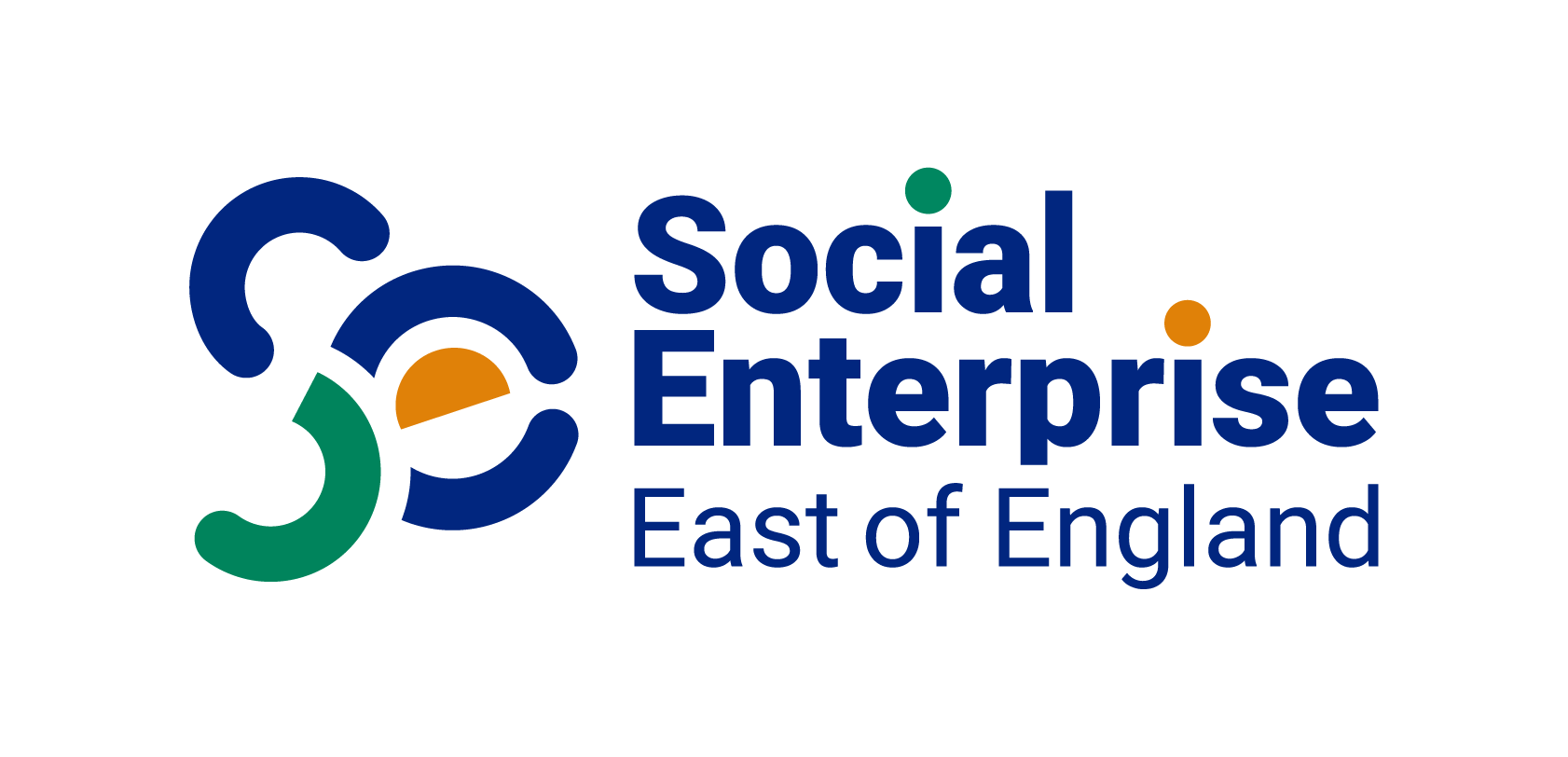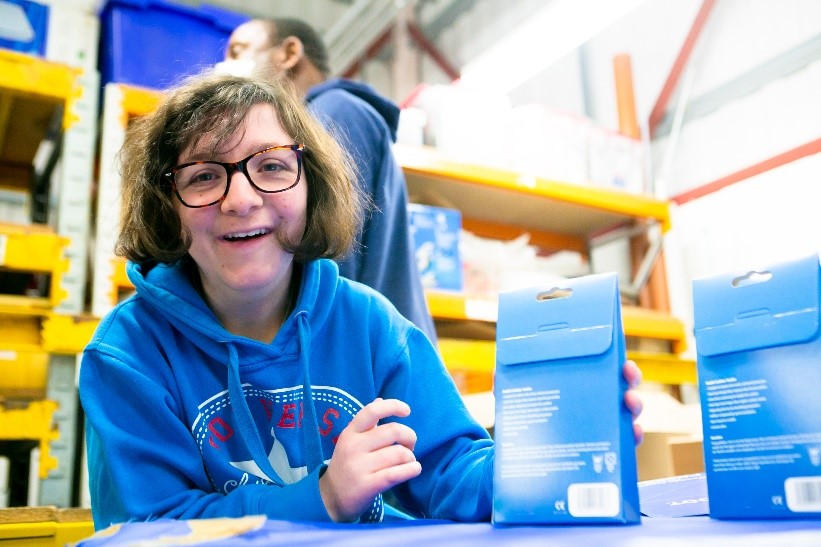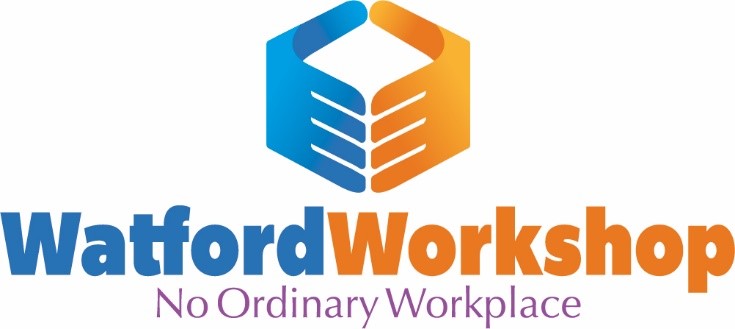
Watford Workshop is a charity that was set up in 1964. It provides employment, work experience and skills training for adults with disabilities. Its aim is to support people with functional and life skills training, helping them to live as independently as possible.
Watford Workshop operates by winning commercial contracts mainly for packing but they also do some light electrical and mechanical work. Companies contract out their packing to Watford Workshop which they complete by hand. This can include putting on bar codes or promotional offers before the goods are sold by high street retailers.
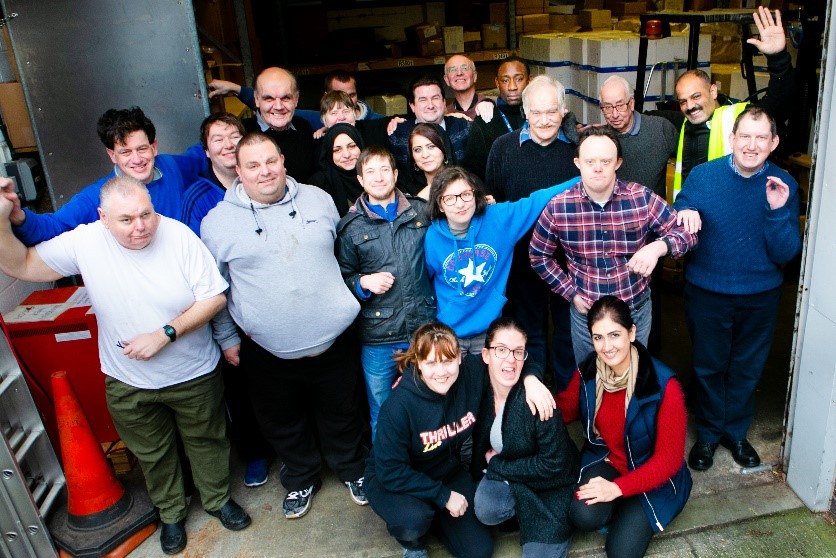
Watford Workshop delivers these contracts through creating employment opportunities for people with disabilities who would not be able to get a job in the mainstream labour market. They currently employ forty-nine people, including the small management team, however there are over 80 people involved with the Workshop includes those who come for day care and volunteers. The aim is for people to be able to move into mainstream employment but they estimate that up to 80% of employees will not be able to do so. People can stay at Watford Workshop for as long as they want. Some people stay for a relatively short time but one user has been there for thirty-seven years and another for forty years. The Workshop also provides a raft of training including literacy and numeracy skills and interpersonal skills.
The main reasons that customers choose Watford Workshop to deliver their contracts is because they ae reliable in terms of quality and meeting deadlines and are competitive on pricing. It’s not an issue for most of them that this is a social enterprise and they are also achieving social benefits. In fact Watford Workshop is unlikely to promote this factor as they are concerned that people might not trust them to do the work well enough – even though they have many satisfied customers – in some cases who have worked with them for thirty years. They get lots of word of mouth recommendations and have customers all over the UK, in Europe and ship work to places as far away as Australia.
“We always say ‘don’t underestimate our workforce’” (Gill Nightingale)
As a charity, Watford Workshop generates extra funding to help them deliver contracts. Gill explains:
“We have to be commercially viable – if the customer wants 100 items packed in an hour for the price, that’s what we have to charge to win the contract. In a normal business one person would do this work but sometimes we need two, three or four people to meet that requirement. That’s when being a charity enables us to make this work available to more people.”
Their charitable funding enables them to create the social impact of creating jobs, above and beyond what a commercial competitor would do.
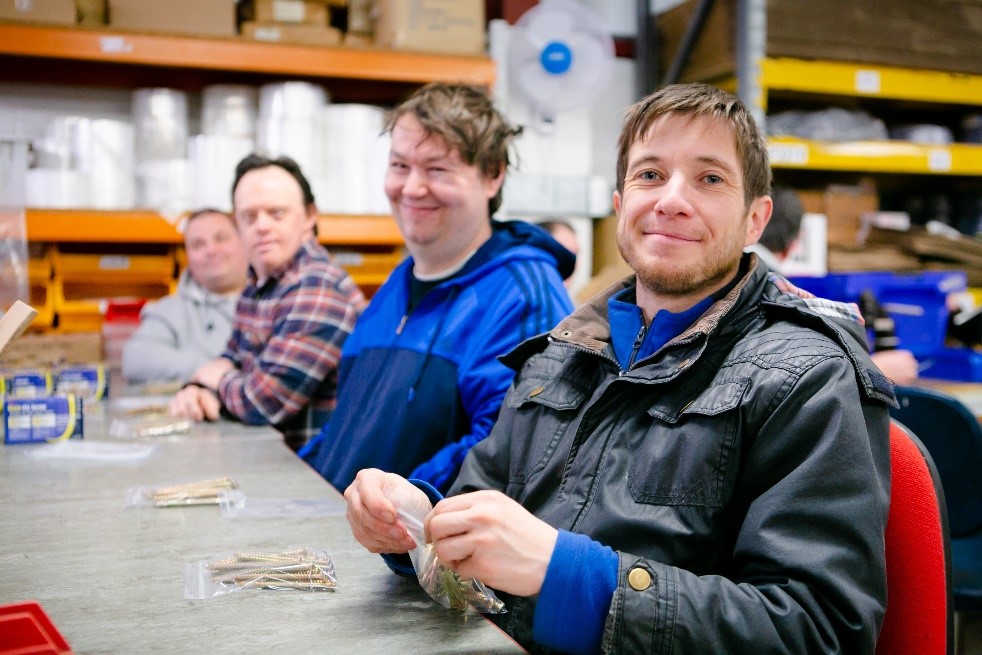
Gill says that the main difference they make to people is their self-confidence.
“People have got a reason to get up in the morning, the dignity of work and a social life.”
She says that lots of people who come to them feel utterly crushed and think that they will never have any opportunities – that no one will give them a chance and they will spend their time isolated at home watching daytime TV. This particularly true for young people who have been in supported education but who “fall off a cliff” when the reach eighteen and there is no provision for them. At Watford Workshop they “blossom” according to Gill and she sees that they see extraordinary changes in people.
“One user had been with us for two years and he never spoke or made eye contact with anyone. Recently I saw him speaking to a workshop supervisor. The next day I spoke to him and he looked at me – it was amazing. He’d been on our confidence-building workshop. It blew me away, I was telling everyone!”
Watford Workshop do an annual review where they ask people how they are feeling and what they think of the service. They then have an external audit of their findings.
Gill says that one of the most important things is when service users can go into a high street shop with their Mum and Dad and point at a product and say “I did that”.
